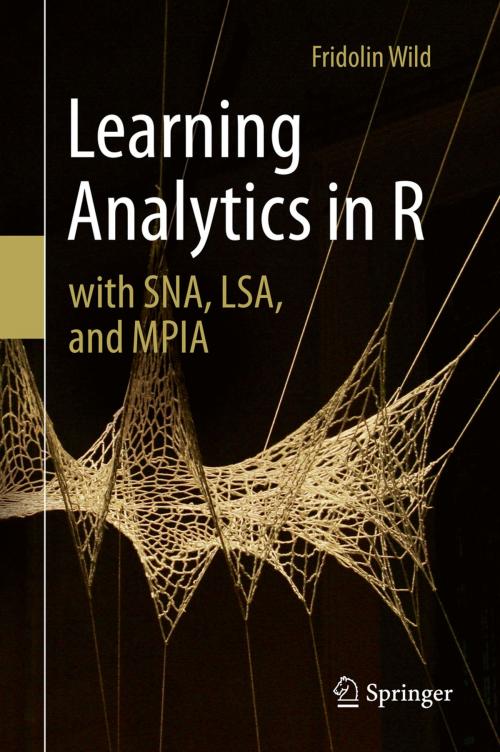Learning Analytics in R with SNA, LSA, and MPIA
Nonfiction, Reference & Language, Language Arts, Linguistics, Computers, Database Management, General Computing| Author: | Fridolin Wild | ISBN: | 9783319287911 |
| Publisher: | Springer International Publishing | Publication: | April 4, 2016 |
| Imprint: | Springer | Language: | English |
| Author: | Fridolin Wild |
| ISBN: | 9783319287911 |
| Publisher: | Springer International Publishing |
| Publication: | April 4, 2016 |
| Imprint: | Springer |
| Language: | English |
This book introduces Meaningful Purposive Interaction Analysis (MPIA) theory, which combines social network analysis (SNA) with latent semantic analysis (LSA) to help create and analyse a meaningful learning landscape from the digital traces left by a learning community in the co-construction of knowledge.
The hybrid algorithm is implemented in the statistical programming language and environment R, introducing packages which capture – through matrix algebra – elements of learners’ work with more knowledgeable others and resourceful content artefacts. The book provides comprehensive package-by-package application examples, and code samples that guide the reader through the MPIA model to show how the MPIA landscape can be constructed and the learner’s journey mapped and analysed. This building block application will allow the reader to progress to using and building analytics to guide students and support decision-making in learning.
This book introduces Meaningful Purposive Interaction Analysis (MPIA) theory, which combines social network analysis (SNA) with latent semantic analysis (LSA) to help create and analyse a meaningful learning landscape from the digital traces left by a learning community in the co-construction of knowledge.
The hybrid algorithm is implemented in the statistical programming language and environment R, introducing packages which capture – through matrix algebra – elements of learners’ work with more knowledgeable others and resourceful content artefacts. The book provides comprehensive package-by-package application examples, and code samples that guide the reader through the MPIA model to show how the MPIA landscape can be constructed and the learner’s journey mapped and analysed. This building block application will allow the reader to progress to using and building analytics to guide students and support decision-making in learning.















